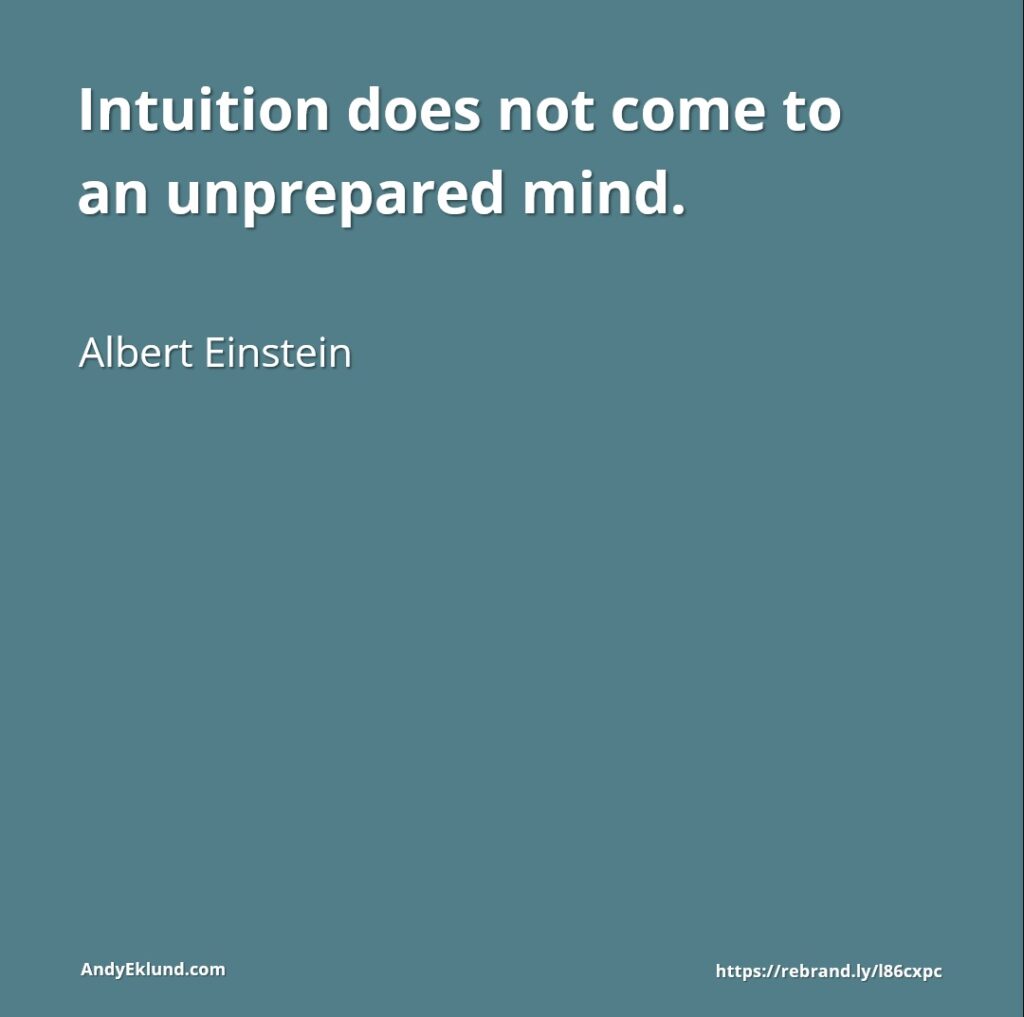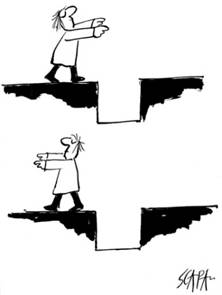Intuition is a magical thing. It appears out of nowhere. We often feel it before we realise it’s there. Often we call it a gut reaction.
We also can’t make it appear.
So what is this thing called intuition?
Intuition is defined as making a decision without a specific thought process, based on a personal perception of or emotions about the truth.
In contrast, strategic thinking is based on a rational thought process, which in turn is based on the essence of rational thought: facts.
Consider these aspects of intuition before you apply it
Both intuition and strategic thinking are natural and effective ways to make decisions, but it’s important too to understand a few important things about intution.
It’s often difficult to convince an analytical person based solely using intuition.
It can be hard to persuade or influence a person of a specific action if you can’t precisely define how and why you came to that decision. This is particularly true when the idea you’re proposing is risky, complex or will be implemented in volatile times.
You can’t repeat intuition from one assignment to another, and you can’t teach it to others.
Because it’s based on a methodology, you can’t teach it to colleagues or staff. As I said above, you can feel it, but you can’t force it to appear. And, if you can’t repeat it or teach it, it makes it difficult to improve your or others’ performance.
Yes, intuition has value, but it’s often better to use it as a guide.
Senior managers use it frequently because they base it on their experience, career or expertise. Sometimes, it’s a better barometer than facts to determine the validity of an idea. But even in these situations, it’s arguably better to use it as a guide when considering the overall strategic thought process.
In the end, absolutely use your intuition. Just don’t rely exclusively upon it. If your instinct is strongly telling you a certain path or option is appropriate, you and your team should try to figure out why.
The Debate about Intuition is Not New
As you’ve probably read elsewhere by now, there is a lot of debate about intuition.
In the past 10 years, some well-known, very popular books say it’s just as good, if not better, than strategic thinking. Others hold the common thought that intuition is not as useful, particularly in complex, nuanced situations. It can also be hijacked fairly easily by poor emotional intelligence.
For example, here are two opposite opinions, both from the Harvard Business Review.
Don’t Trust Your Gut, by Eric Bonabeau, compared to:
How to Stop Overthinking and Trust Your Gut by Melody Wilding.
I’ll leave the decision to you, but I thought I’d end with two quotes which show this discussion has been going on for many years.
From Charles Darwin: “The very essence of instinct is that it’s followed independently of reason.”
From Albert Schweitzer: “As we acquire more knowledge, things do not become more comprehensible, but more mysterious.”
This topic is one my students love, so I wrote a later about how to strengthen your intuition.
What are some of your own examples of intuition in business? Please add your comments and thoughts below.



No comment yet, add your voice below!